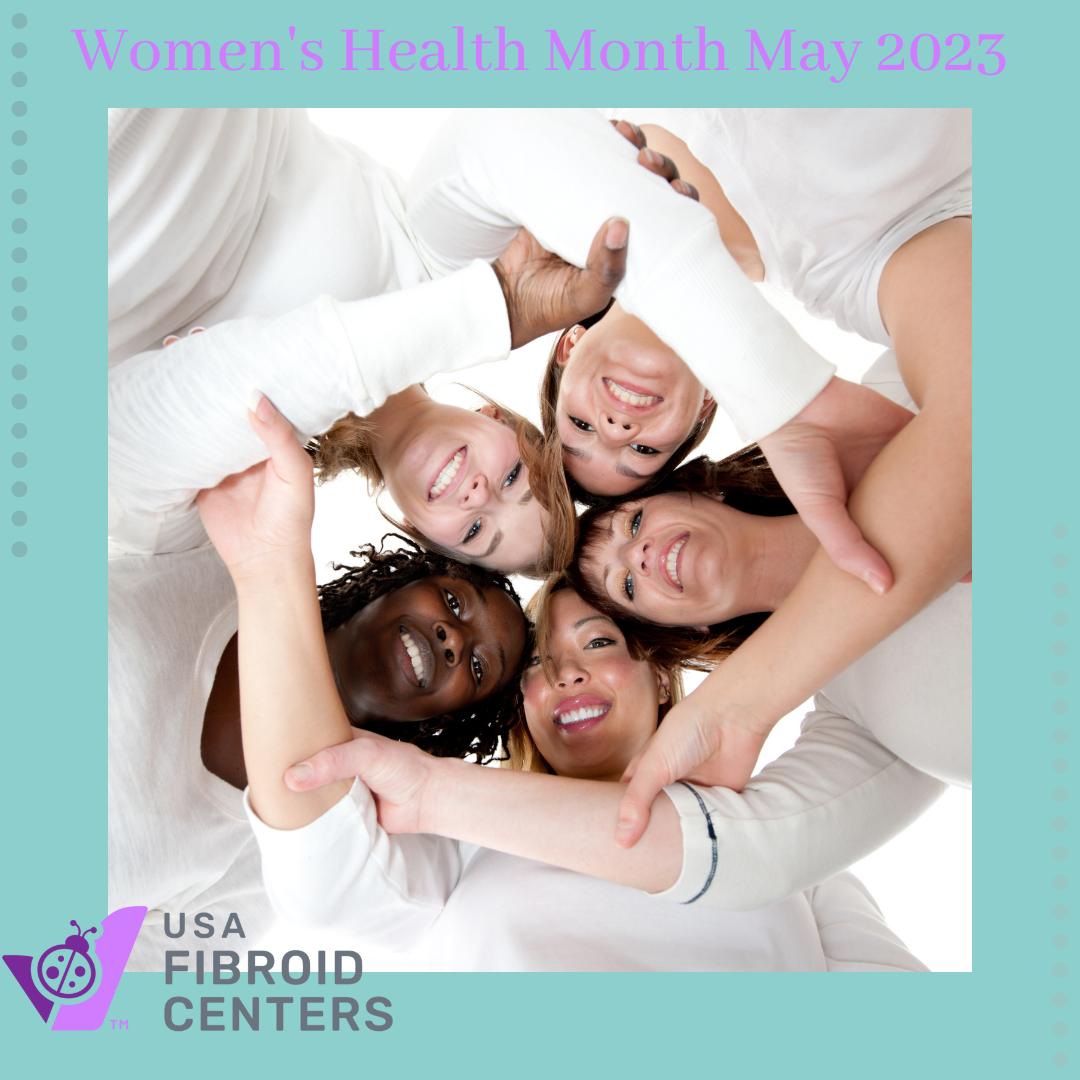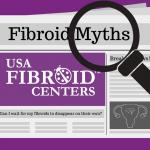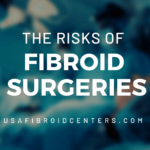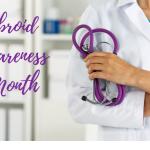
May is the Time to Take Care Of Women’s Health
May is National Women’s Health Month, an annual observance led by the U.S. Department of Health and Human Services Office on Women’s Health. USA Fibroid Centers is encouraging women to improve their health. The health of women is important to us, every day.
In May, we want to take an extra step to remind women and girls to make their health a priority and take care of themselves. During this month, women are encouraged to:
- Find activities that you enjoy to get you moving.
- Eat a healthy and balanced diet.
- Take your mental health as seriously as your physical health, and learn how to manage stress.
- Habits are formed by repetition, so practice healthy behaviors.
- Prevention and early detection are the keys to health and longevity. Schedule all of your wellness exams.
Free Fibroid Screenings
As part of our commitment to helping women take better care of their healthcare needs, USA Fibroid Centers is offering free screenings for fibroids.
Call and say ” FREE SCREENING” to schedule a complimentary screening at 844-342-7643.
Why should women be screened for fibroids?
Uterine fibroids affect women of reproductive age. While these tumors are benign, they can affect fertility and cause painful symptoms and other health conditions. Fibroids create a risk during pregnancy; it is beneficial to detect and treat fibroids before conception.
What is a Fibroid Screening?
Uterine fibroids may be discovered during a pelvic exam. However, your doctor might decide to order additional testing.
- Ultrasound: The most common scan for fibroids is ultrasound. An ultrasound probe is placed on the abdomen or inside the vagina to scan the uterus and ovaries by a doctor or technician.
- MRI: An MRI uses magnets and radio waves to create images that identify fibroids’ size, number, and placement.
What are Fibroids?
Fibroids are benign tumors composed of smooth muscle cells and fibrous connective tissue that develop in the uterus. An estimated 70 to 80 percent of all women develop these tumors in their lifetime, although not all fibroids become symptomatic.
Fibroids grow at different rates, even when a woman has more than one. They can range from as small as a pea to as large as a watermelon.
Fibroids Facts
- Uterine fibroids are the most common tumor of the reproductive system.
- Women who are nearing menopause are at greater risk for fibroids.
- Fibroids are often found during a routine pelvic exam.
- Symptoms may include heavy and prolonged periods, bleeding between periods, and pelvic pain.
- There are a variety of treatment options available. Uterine fibroid embolization (UFE) is an effective alternative to surgery. UFE treats fibroids while preserving the uterus.
Who is at Risk for Fibroids?
The cause of fibroids is not known. However, studies indicate there are risk factors that increase the chances of developing fibroids and a hereditary component.
Here are the factors that can contribute to developing fibroids:
- Age: As women age, fibroids are more common, especially during their 30s to menopause. After menopause, fibroids are much less likely to form and usually shrink.
- Family history: The risk increases if there is a family history of fibroids. If a woman’s mother had fibroids, her risk of developing them is three times higher than average.
- Ethnic origin: African-American women are more likely to develop fibroids than white women.
- Obesity: High BMIs increase the risk for fibroids.
What are the Symptoms of Fibroids?
Signs and symptoms of fibroids can vary from woman to woman. Symptoms include:
- Heavy and prolonged bleeding between or during periods
- Anemia, which can lead to fatigue
- Pain during intercourse
- Frequent urination
- Swollen abdomen
- Pain in your pelvis or lower back
- Increased menstrual cramping
Non-Surgical Fibroid Treatment Options
Uterine fibroid embolization (UFE) is an outpatient procedure that treats uterine fibroids and symptoms without surgery. There is no hospitalization, stitches, or scarring involved. UFE is U.S. Food and Drug Administration (FDA) approved.
UFE treatment is a great option for women who desire to preserve their uterus. It is also a better option than a hysterectomy for women who wish to get pregnant in the future. After UFE, your fibroids will shrink and disappear, alleviating symptoms.
Call 844-342-7643 for more information and scheduling assistance for your free screening.



